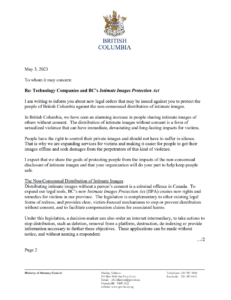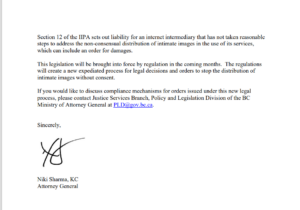Intimate Image Claims Worth “Considerably More” Than $5,000
The first precedent has been handed down invoking BC’s new Intimate Images Protection Act. In short the legislation makes it unlawful to share intimate images of another person without their consent. Even if you initially obtained the images consensually. The law is broad in its reach.
The law allows civil claims to be prosecuted in the Civil Resolution Tribunal, Provincial Court, or Supreme Court. Choosing the CRT is faster, cheaper and easier. But the CRT has a limit of $5,000 in damages in these types of claims. In today’s case the CRT found that these cases, once liability is established, are worth ‘considerably more’ than their limit so awarding the $5,000 seems to be a default damage assessment in that venue.
In the recent case (BDS v. MW) the applicant shared semi nude images of a sexualized nature with the respondent. The respondant shared these with another without the applicant’s consent. The key facts and findings were as follows where the CRT provided some worthwhile comments on the definition of what constitutes an intimate image along with damage assessments:

